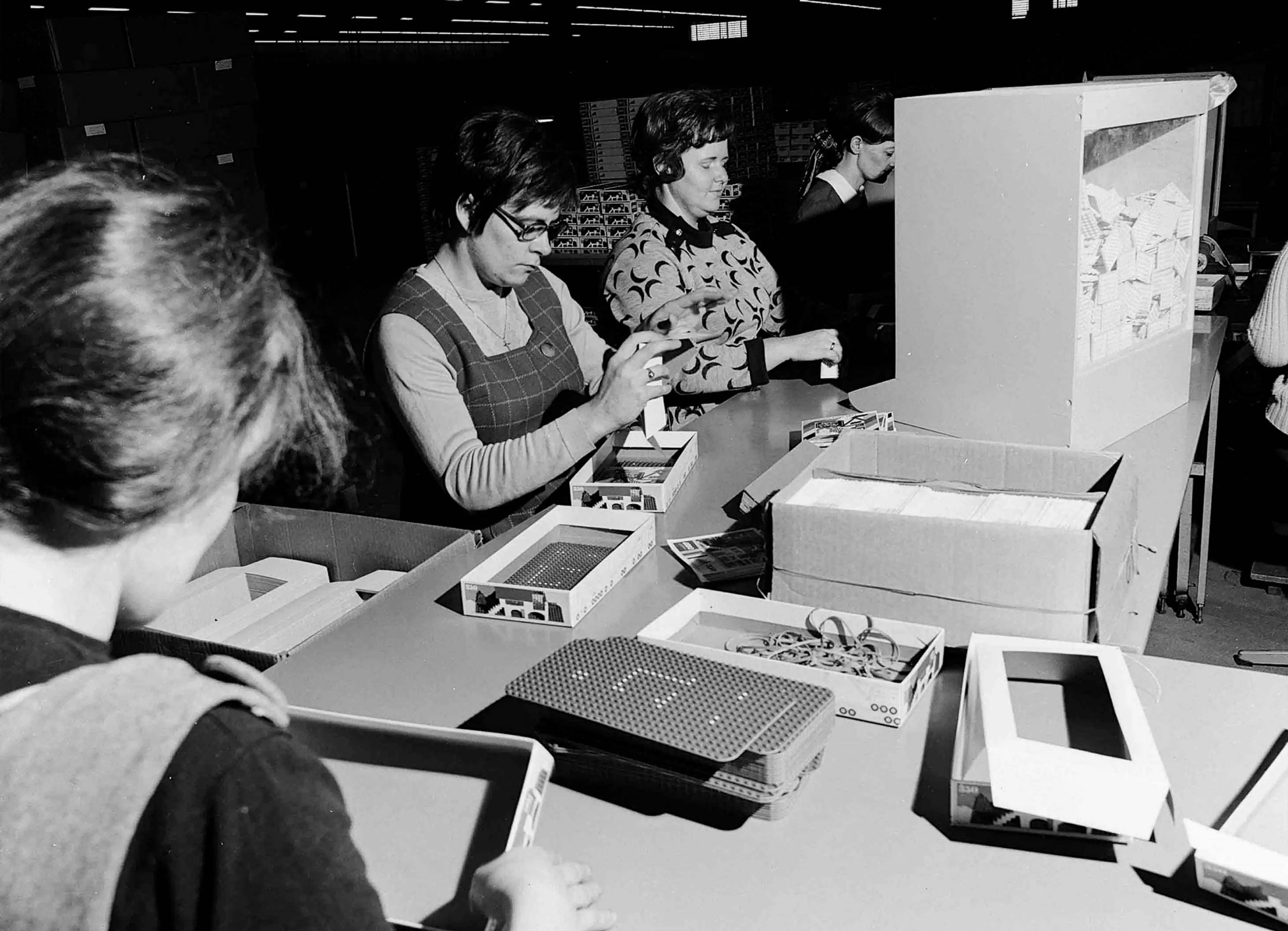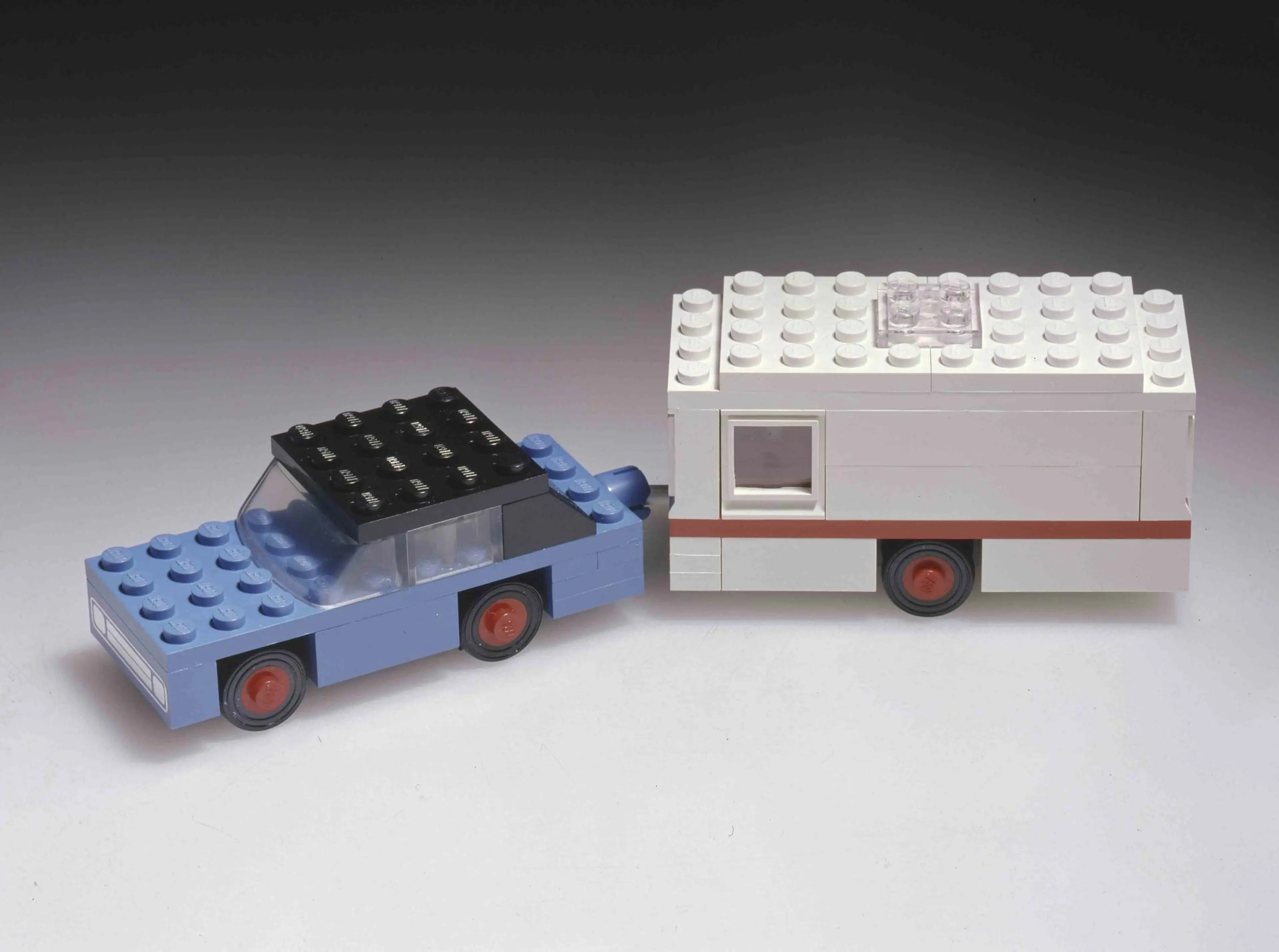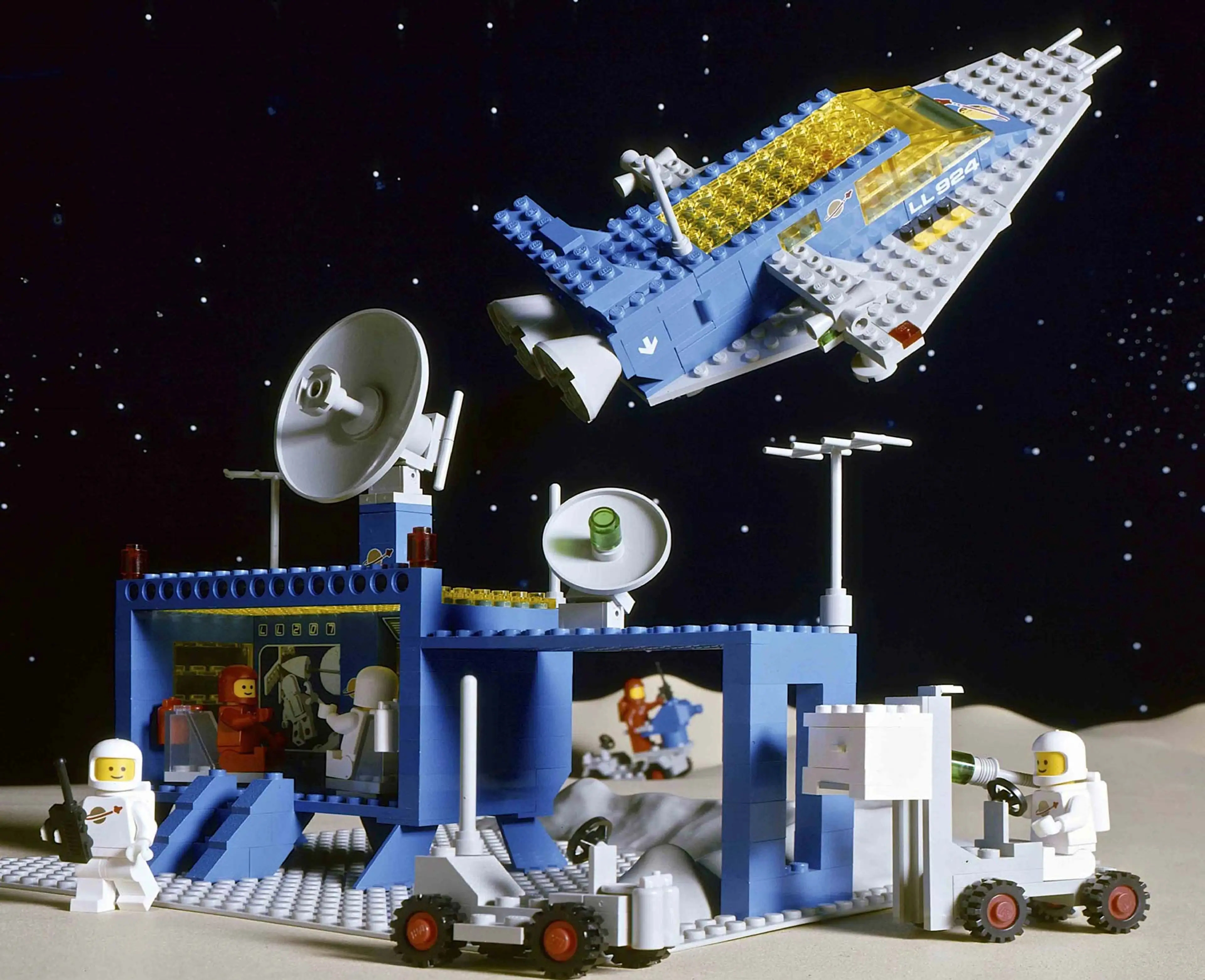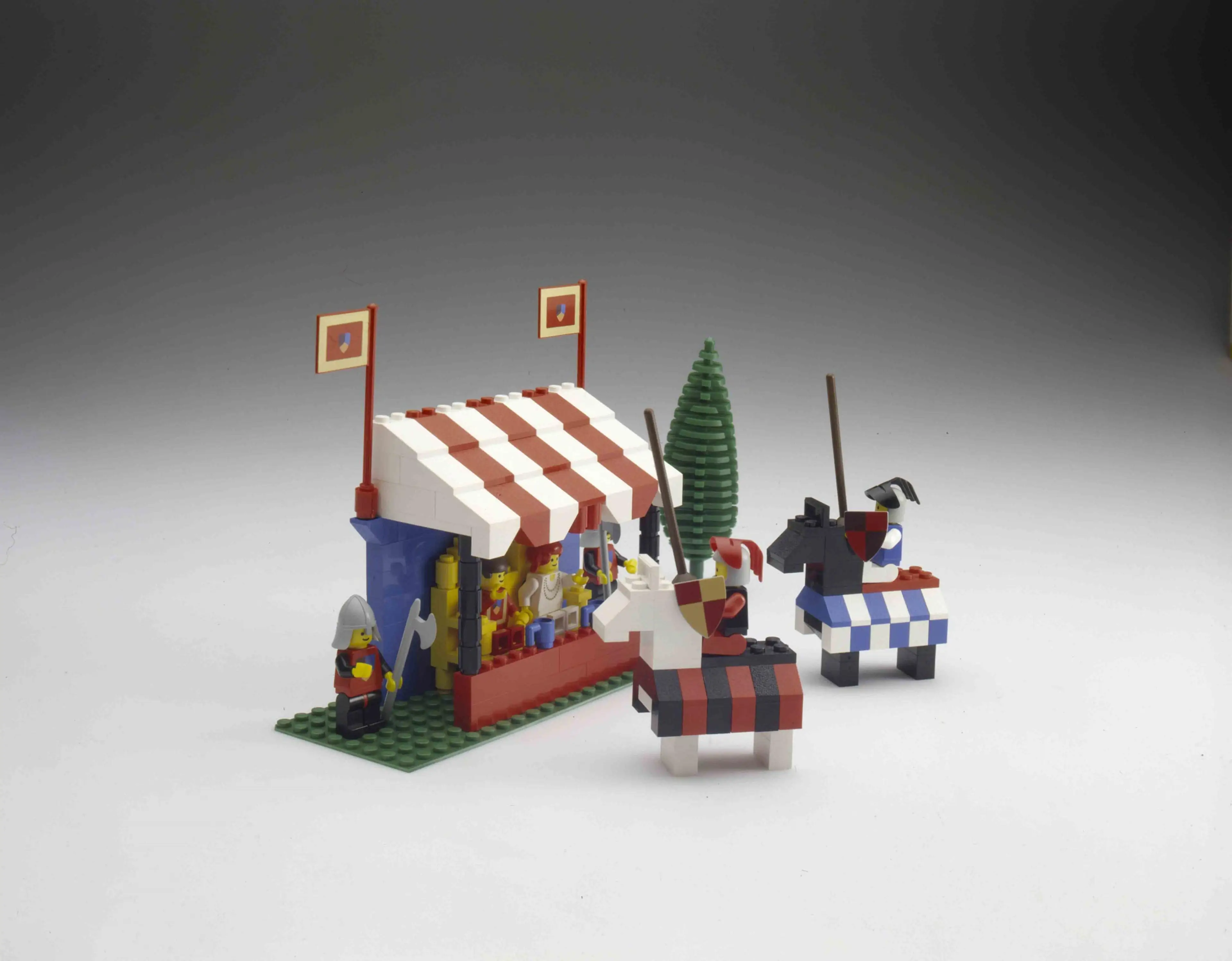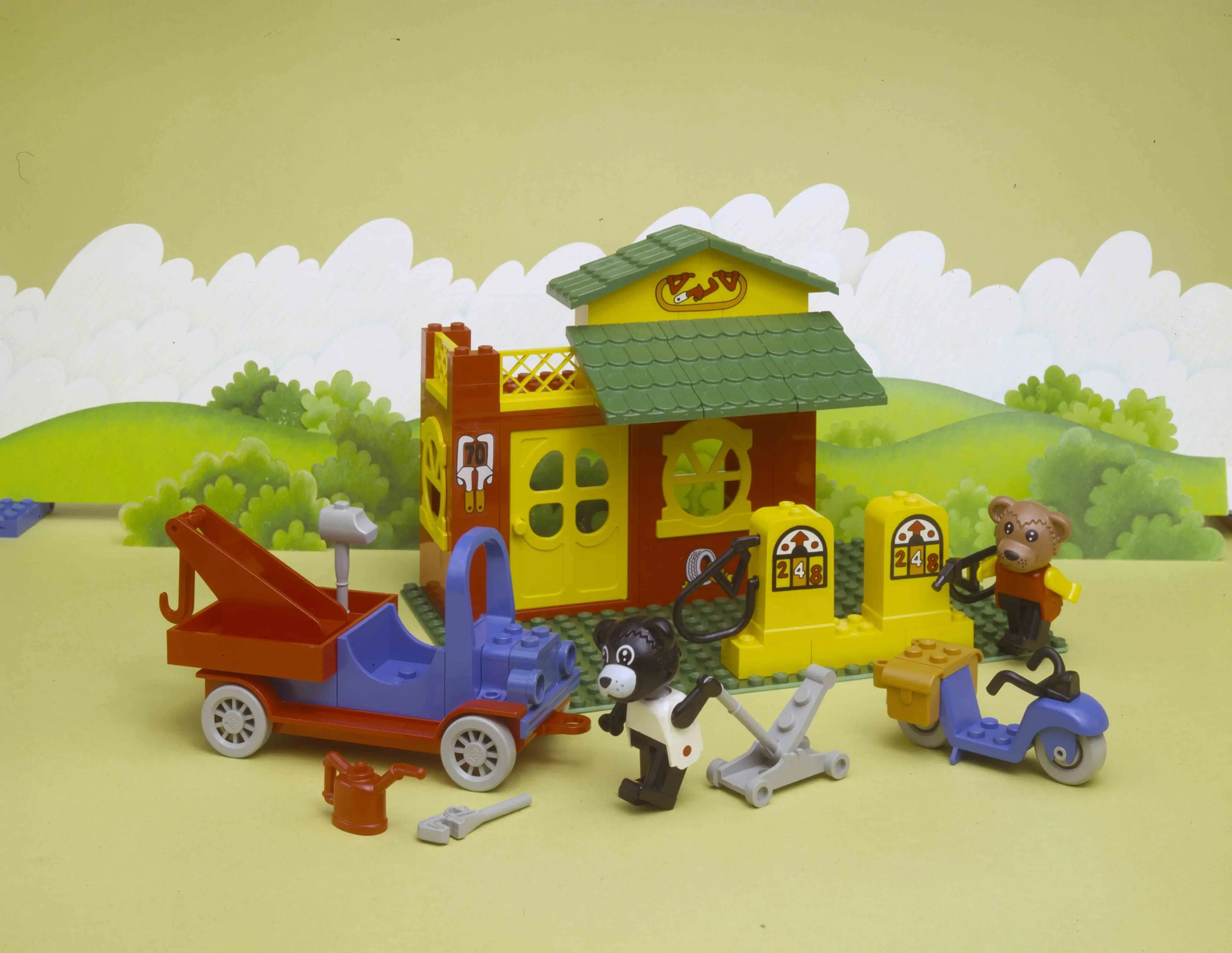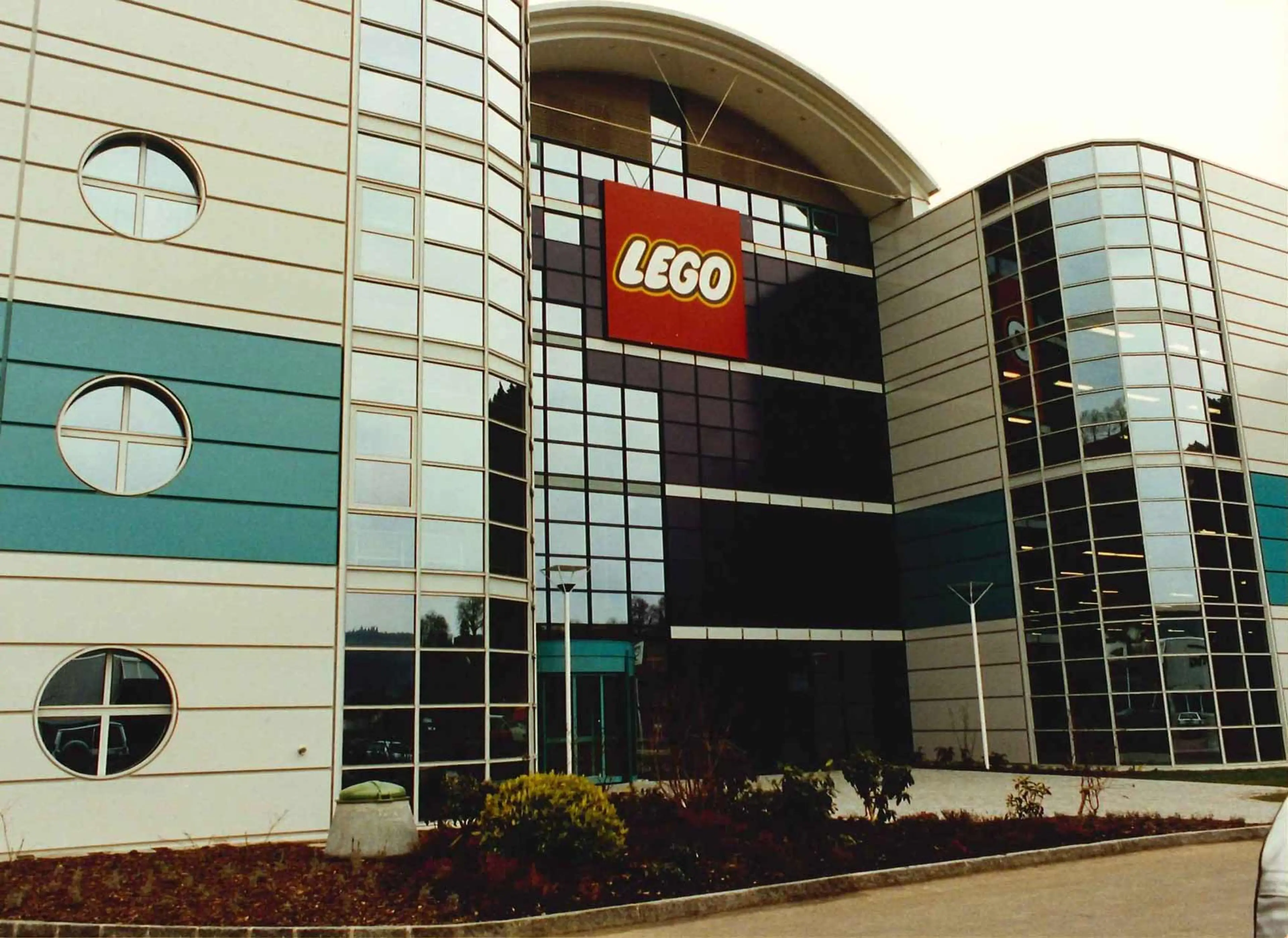Throughout the 1960s and early 1970s, the LEGO® product range mostly consists of houses and vehicles, but no figures exist to inhabit and drive them. However, LEGO Group management is more than willing to add an extra dimension to the LEGO universe by introducing role play in the form of a LEGO figure.
The LEGO building figure
The result in 1974 is the LEGO building figure. It has a round, yellow head with decorated facial features, movable arms, and torso and legs made of LEGO bricks. The figure is a great success, and set no. 200 in particular, a LEGO building figure family, sells very well. The set comprises a mother, father, children and grandmother. Thanks to the sales success of the LEGO building figure, production capacity is increased and now includes working on public holidays.
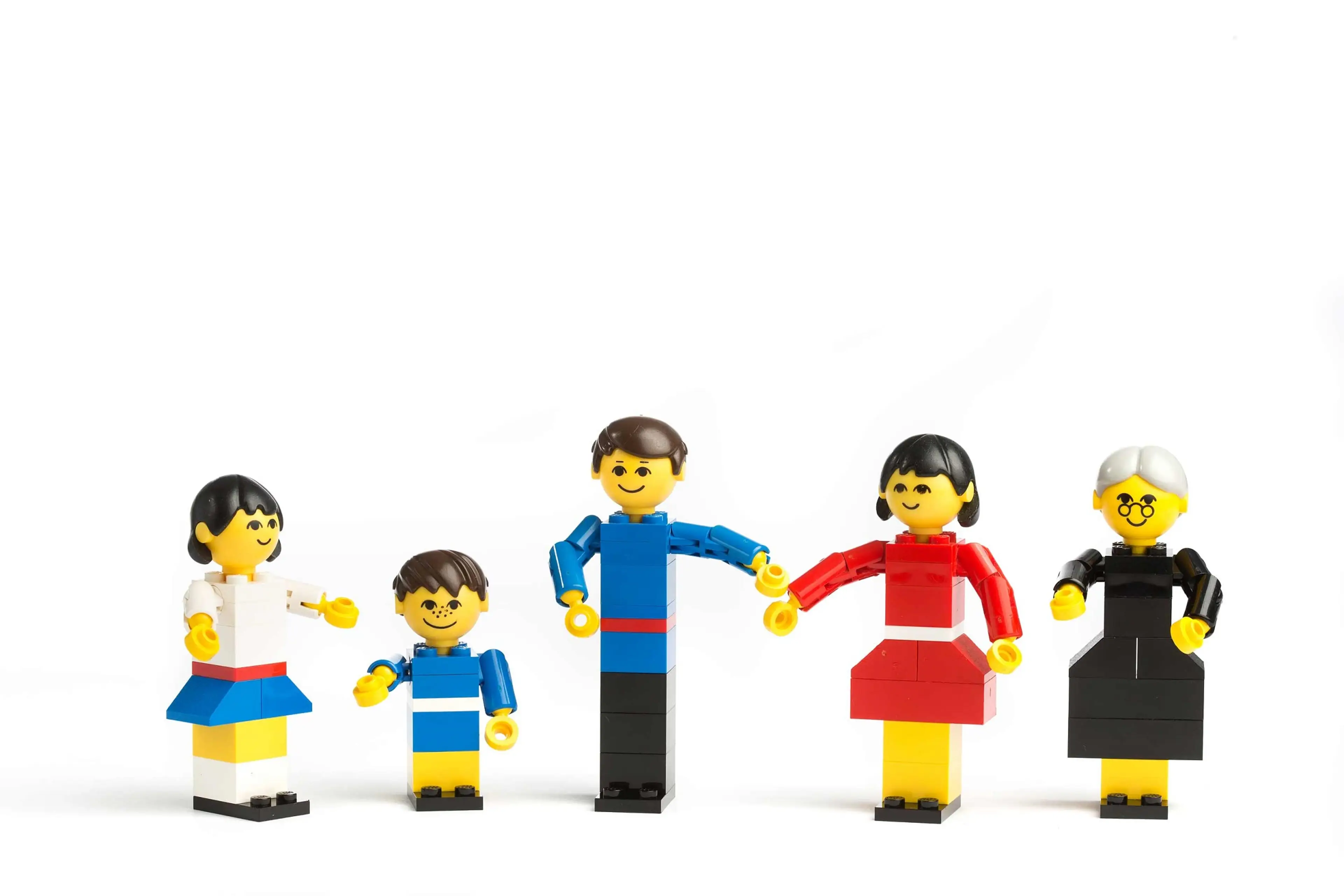
LEGO building figures from 1974
The static figure
Although the LEGO building figure is popular, there is a general desire to produce a figure more on a scale with the LEGO brick. To accommodate this, a development process, headed by designer Jens Nygård Knudsen, kicks off to design a smaller LEGO figure. The result emerges in 1975, a modest figure four LEGO bricks tall with a faceless round yellow head and torso with contours of arms and legs. The figure can be placed on any other LEGO element, but it cannot grip anything and cannot “walk”.
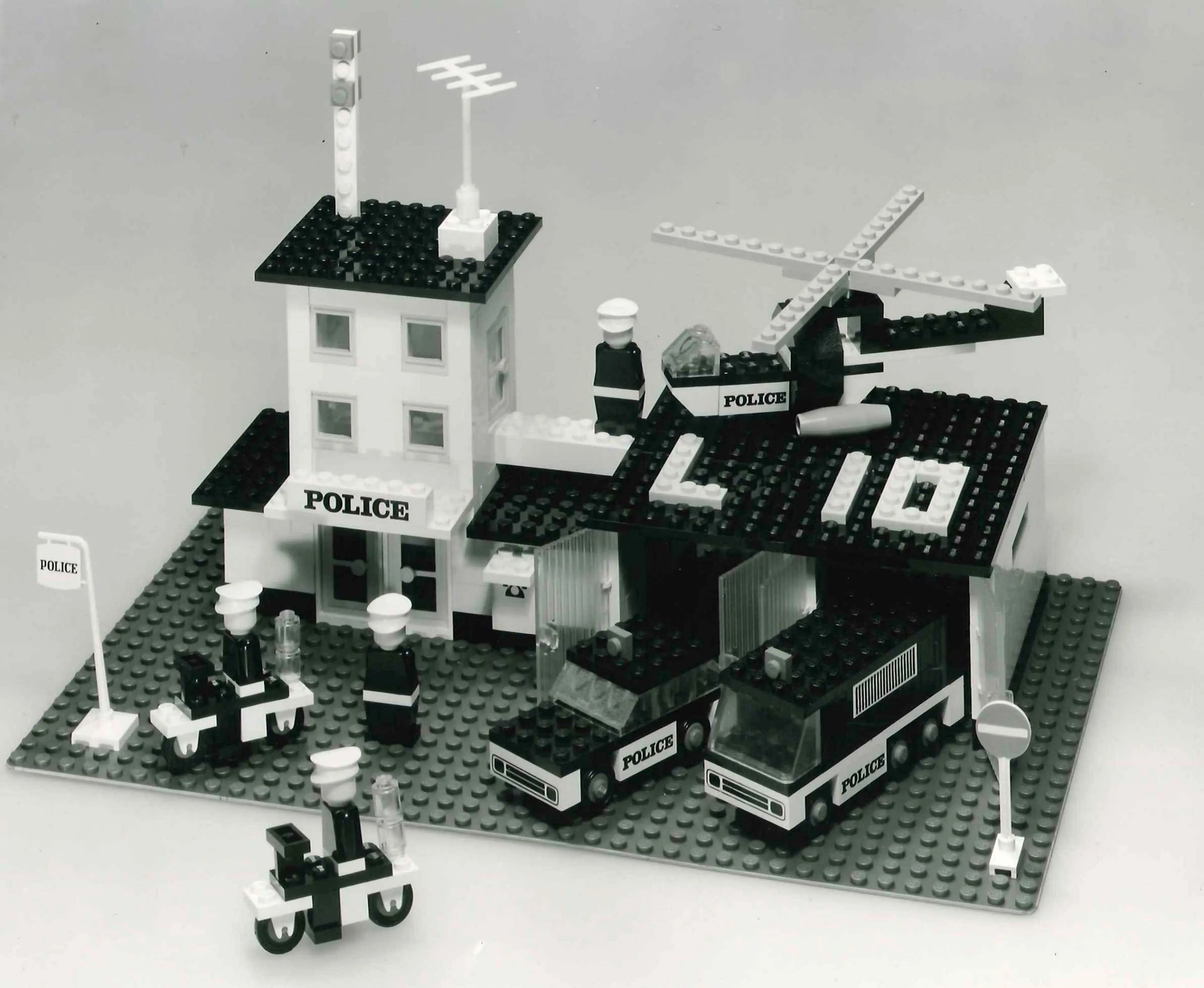
Set no. 370 from 1976
The LEGO minifigure
After launching “The Extra”, Jens Nygård Knudsen does more work on his design of a new LEGO figure. He wants to create a figure with more life. Part of his solution is to design a figure with movable arms and legs. Management hears about the new figure and orders it into production. It launches in 1978 under the name: LEGO minifigure. The minifigure becomes a huge hit. The success is easy to understand; The minifigure brings life and roleplay to the LEGO brick and being four LEGO bricks tall, without hair or headpiece, it fits perfectly with the LEGO System in Play.
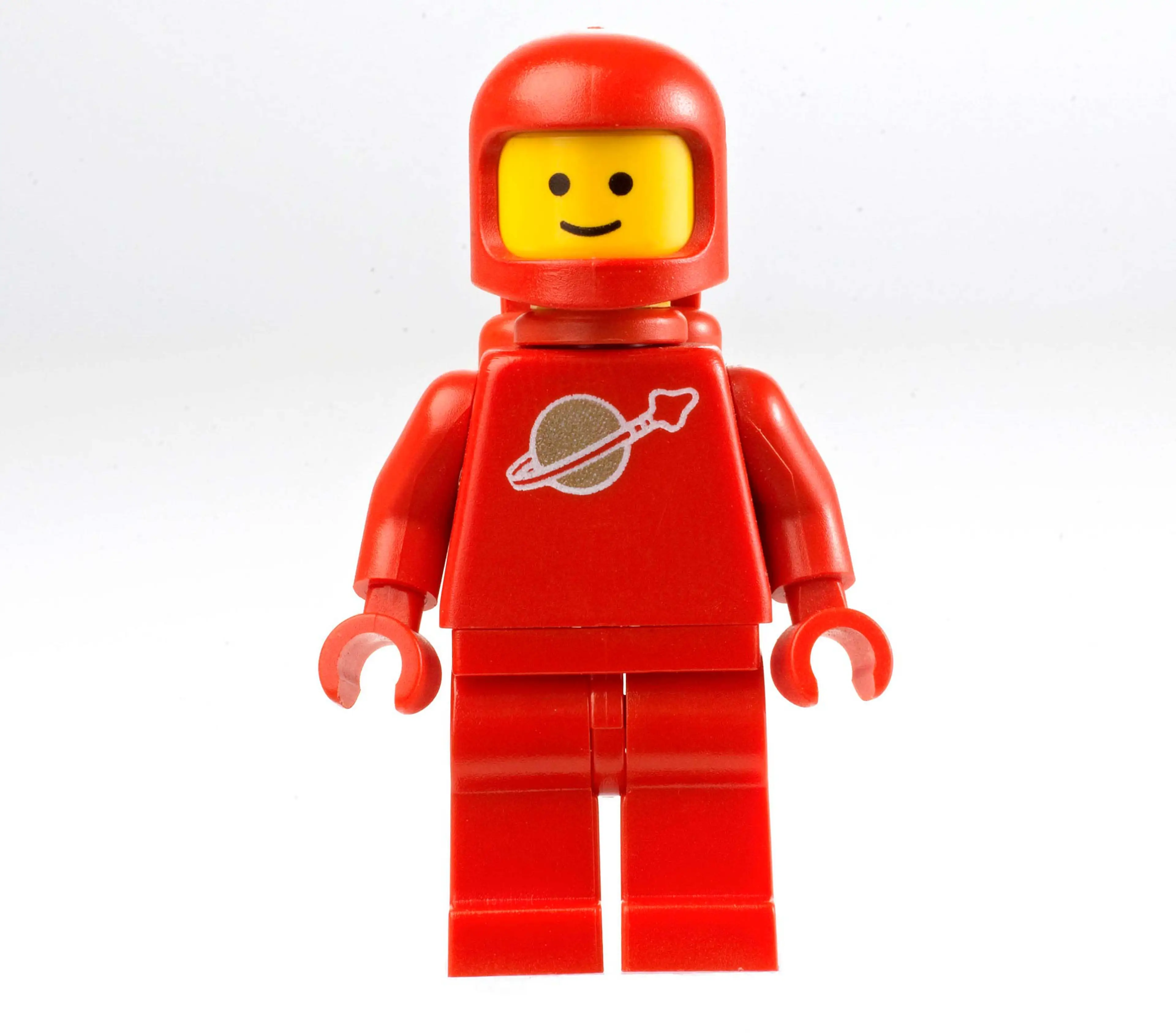
LEGO Space minifigure, 1978

